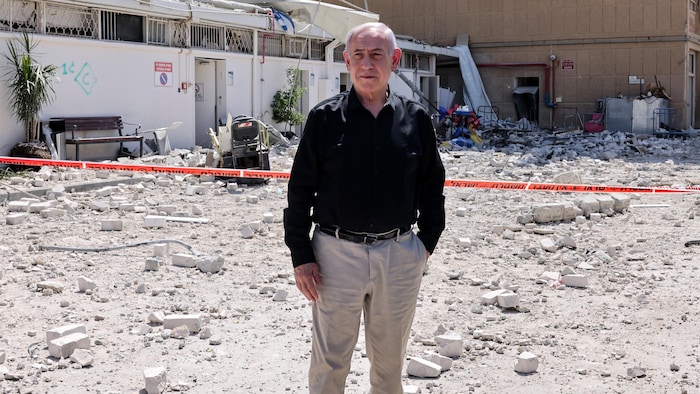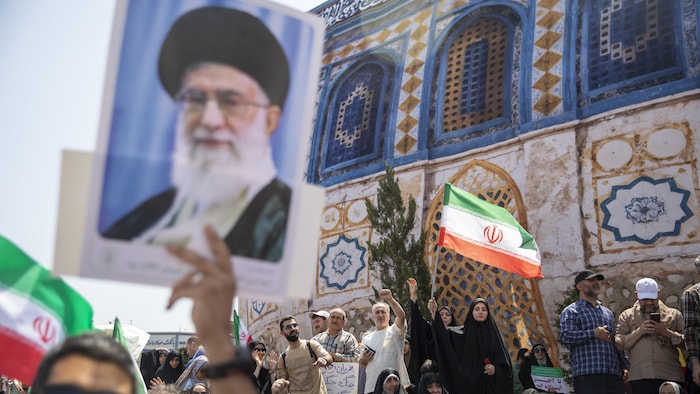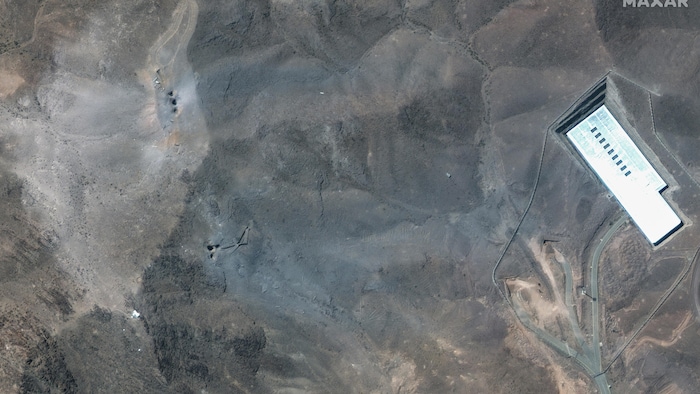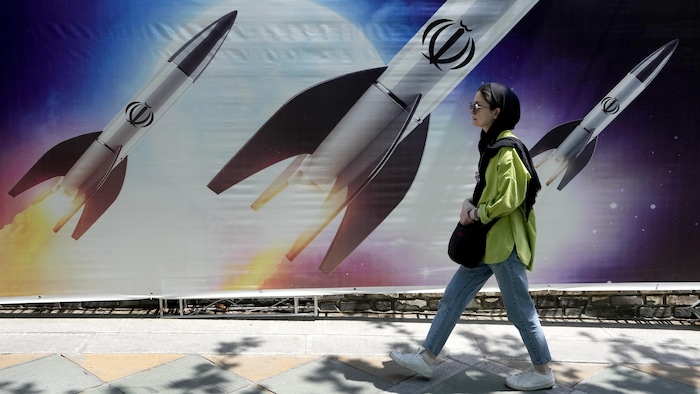It is too early to assess the consequences of the 12 -day war between Israel and the Islamic Republic of Iran. As it is too early to find out if the fragile ceasefire will be respected by all the belligerents. However, it is already possible to review certain elements of this unprecedented confrontation between two countries separated by a thousand kilometers.
On the eve of the sixth cycle of negotiations between Iran and the United States on the Iranian nuclear program, Israel has carried out a dazzling attack against Iran. Several leaders of the revolution guards and a dozen major figures in the Iranian nuclear program are murdered in a few hours. Military facilities are destroyed or damaged as well as nuclear power plants.
Iranians took several hours to get up from the-U-underprise attack and to retaliate. The Israelis took advantage by succeeding in blurring the radars and making air defense of the Republic inoperative for several hours.
The Israeli army benefited from an important advantage: several “secret” agents recruited directly from Iran. This is what allowed them to assassinate the important characters of the State, in particular by attacks of drones launched within the interior of the rival country.
In his first intervention after the attack, Israeli Prime Minister Benyamin Netanyahu justified his attack preventive
by the threat of Iranian nuclear weapon which would aim at destroy
the Hebrew state.
In his speech, Mr. Netanyahu also called on the Iranian population to rise against the regime in place in Iran, thus taking advantage of the instability induced by the attack.
The Israeli Prime Minister also promised to destroy the arsenal of ballistic missiles and the capacity to build these weapons, which, according to him, constitute a menace
against the security of Israel.
Mr. Netanyahu therefore gave himself three primordial objectives: overthrowing the Iranian regime, destroying its nuclear program as well as the Ballistic arsenal.
A toll difficult to establish

Prime Minister Benyamin Netanyahu in the middle of debris from Soroka Hospital in southern Beer-Sheba
Photo : pool/afp via getty images / MARC ISRAEL SELLEM
A few hours after the entry into force of the ceasefire, Benyamin Netanyahu proclaimed in a television speech the victoire
of Israel against Iran by claiming to have destroys the missile manufacturing industry
. He also undertook to go back to war against Any attempt to resume nuclear ambitions
insinuating that Iranian nuclear capacities have been reduced to nothing.
He also mentioned having made a decisive blow against the regime, the hardest part of its history
.
With the results he draws from it, did Benyamin Netanyahou win the war as he proclaims? Nothing is less certain, however.
In terms of regime change, Iran has undoubtedly received an asslessing blow, which revealed enormous weaknesses in matters of counterintelligence and security of its leaders. However, this Israeli -wide operation failed to overthrow the regime.
The murdered generals were replaced in the hours that followed the attack. And Ayatollah Khamanei appeared on television the same day, promising a punishment
in Israel.
The Iranian population did not lift itself against the regime, but a party rather supported it by participating in massive demonstrations throughout the country.

Protesters in Tehran brandish Iranian flags and a portrait of the Iranian Supreme Guide during a demonstration against Israeli attacks on Iran on June 20, 2025.
Photo : Getty Images / Majid Saeedi
The Israeli attack has rekindled a deep nationalist feeling and the calls to the revolt of the son of the former Iran chah, who lives in exile in the United States, did not find echo.
The enigma of the Iranian nuclear program
Israel led a multitude of bombing against the nuclear sites of Natanz, Ispahan and Arak. However, success was not there, obviously.

This satellite image provided by Maxar Technologies shows a close view of craters on a crest of the Fordo enrichment factory in Iran after the American strikes. (Archives photo)
Photo : AP
On the tenth day of war, US President Donald Trump ended up responding favorably to the requests of Benyamin Netanyahu by ordering an attack on the three main Iranian sites, namely Natanz, Fordo and that of Ispahan.
President Trump assured the same day having destroyed the Iranian nuclear program
.
The Iranians, for their part, claimed to have sheltered their enriched uranium stock and the centrifuge, although no information on the extent of the damage caused by the American and Israeli bombardments has been announced.
On Tuesday, the day of the ceasefire proclamation, CNN revealed that an intelligence report of the US military suggests that the American strikes did not destroy the three Iranian nuclear installations of Fordo, Natanz and Ispahan. At the very least, they would have delayed the Tehran nuclear program of only a few months, according to an assessment of Pentagon information.
These revelations made the White House spokeswoman Karoline Leavitt, who affirms that this evaluation is furious totally wrong
.
In the same day, Mohamed Eslami, the boss of the Iranian atomic energy organization said thatA third enrichment site is already set up in a secure place
. We will start enrichment activities at the right time
he added.
For his part, the Iranian Minister of Foreign Affairs, Abbas Araghchi, said that the program was continuing.
For the moment, the mystery remains on the fate of this nuclear program and Iran’s abilities to continue it.
What about missiles?

A woman walking in front of an illustration representing missiles in the Iranian capital, Tehran. (Archives photo)
Photo : Associated Press / Vahid Salemi
Throughout the 12 days of war between the two countries, Iran launched more than 500 missiles of different types towards Israel, about forty per day on average, according to a count of several local media.
A few minutes before the truce, the Iranians launched a series of missiles on Beer-Sheva, which caused significant damage and removed their lives to three people.
Many media from around the world have reported important destruction caused by Iranian missiles, especially in Tel Aviv and Haifa.
Did the Iranians fired their last cartridges or did they preserve their arsenal for another confrontation?
The confrontation between Israel and the Islamic Republic of Iran is far from shooting at its end, since the devastating war in Gaza – which is the central cause – does not see light at the end of the tunnel.

